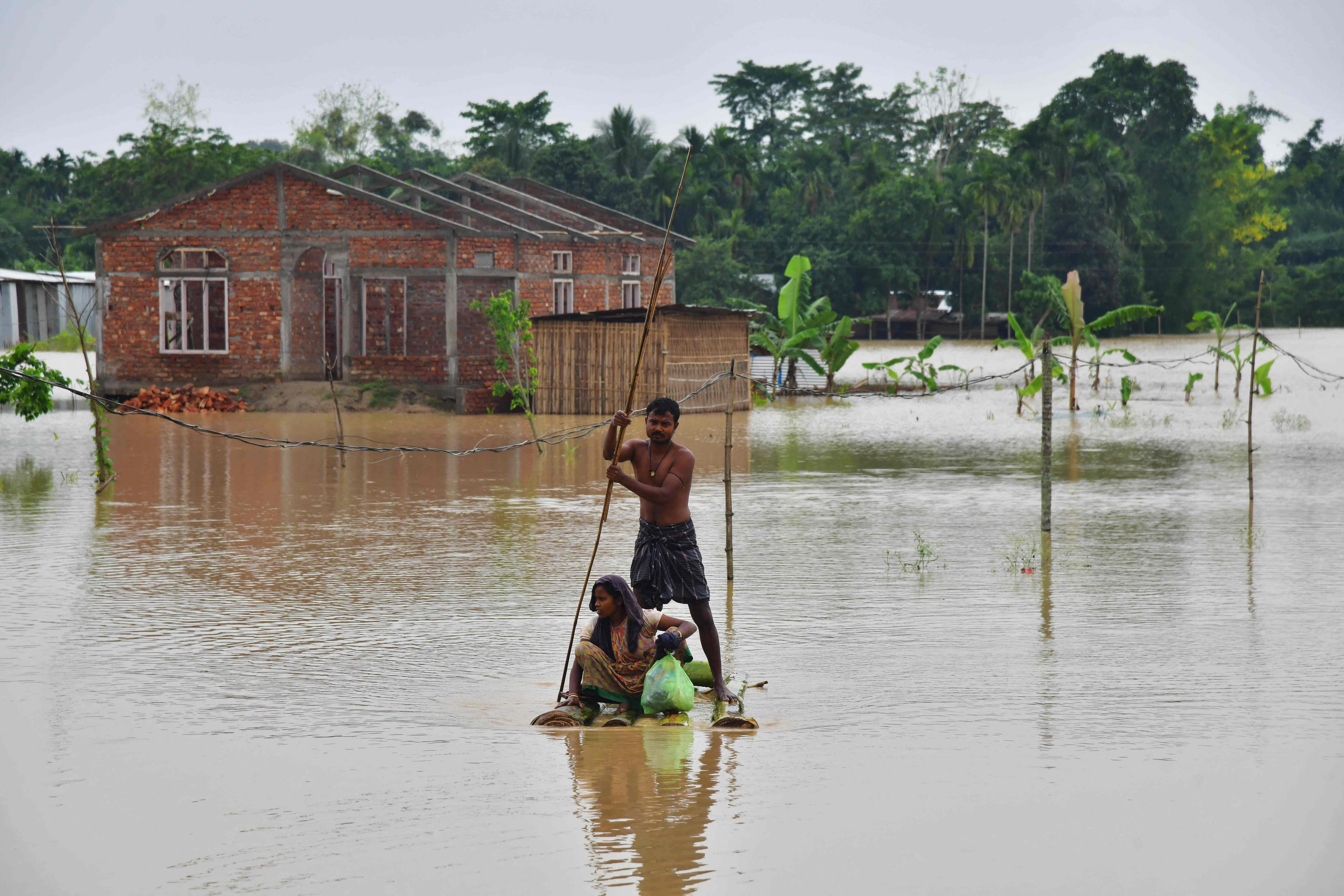Could nature be our best protection from the climate crisis?
Building resilience among communities vulnerable to the effects of human-induced climate change means employing life-saving, nature-based solutions


Your support helps us to tell the story
From reproductive rights to climate change to Big Tech, The Independent is on the ground when the story is developing. Whether it's investigating the financials of Elon Musk's pro-Trump PAC or producing our latest documentary, 'The A Word', which shines a light on the American women fighting for reproductive rights, we know how important it is to parse out the facts from the messaging.
At such a critical moment in US history, we need reporters on the ground. Your donation allows us to keep sending journalists to speak to both sides of the story.
The Independent is trusted by Americans across the entire political spectrum. And unlike many other quality news outlets, we choose not to lock Americans out of our reporting and analysis with paywalls. We believe quality journalism should be available to everyone, paid for by those who can afford it.
Your support makes all the difference.There can be no doubt that the climate crisis is here, right now. In parts of northwest India and Pakistan, temperatures recently reached a record-breaking 51C during heatwaves made 100 times more likely by the climate crisis. As a result, hospital admissions for heat-related incidents have increased by a staggering 20 per cent.
In parts of Bangladesh, human-induced climate change is driving floods that have led to major food shortages. Many communities have been completely submerged, leaving many dead and more than two million stranded. The United Nations says that more than 1.5 million children in the country are at increased risk of waterborne diseases, drowning and malnutrition due to the floods.
In Australia, bushfires in 2020 killed or displaced nearly three billion animals. Over the past three years, the country has also been gripped by drought, cyclones and freak tides, which in turn has led to climate change becoming a key concern for citizens.
These are just a few examples of a worrying trend. Over the last 20 years, natural disasters linked to the climate crisis have increased by 40 per cent. Sudden onset, climate-related disasters, such as droughts and floods, have killed around 410,000 people in the last decade, and nine in 10 of the people who lost their lives due to such hazards were in the developing world.
As research from the Stockholm Environment Institute neatly summed up ahead of Stockholm+50, which marks 50 years since the first global conference on the environment took place in the Swedish capital, the world is at boiling point. And with global greenhouse emissions continuing to rise and reach record-breaking levels in the atmosphere, the frequency and severity of climate-related disasters will only worsen.
Thankfully, there is much that we can do to build resilience among vulnerable communities on the front line of the climate crisis, and a new report from the International Federation of Red Cross and Red Crescent Societies (IFRC) and the World Wide Fund For Nature (WWF) spells out how, highlighting the often overlooked, yet transformational power of nature-based solutions.
Nature-based solutions involve protecting, sustainably managing and restoring ecosystems to address societal challenges such as climate change, while also boosting human wellbeing and biodiversity. The report predicts that these solutions could reduce the intensity of climate and weather-related hazards by an astonishing 26 per cent, in a world where more than three billion people live in places that are highly vulnerable to climate change.
Our research shows how nature-based solutions can save lives, by reducing the likelihood of climate and weather-related disasters occurring. Where communities are exposed to the hazards of the climate crisis, for example, such solutions include healthy connected floodplains, which can reduce flood risk; reforestation, which can help prevent landslides; or restoration of mangroves and coral reefs, which can protect against storm surges. Nature-based solutions can also capture and store carbon, and provide food, livelihoods and crucial habitats. They can improve communities’ water security and contribute to better human health.
Promisingly, the analysis shows that nature-based solutions can also provide developing countries with massive economic savings – at least $104bn (approximately £83bn) in 2030, and $393bn (£314bn) in 2050.
To keep up to speed with all the latest opinions and comment, sign up to our free weekly Voices Dispatches newsletter by clicking here
There are countless examples of countries that have already seen the benefits of nature-based solutions. One is Jamaica, where coral reefs are an important natural defence for the country’s coastline, protecting coastal communities and tourist hotels from the destructive force of tropical storms. Coral reefs can reduce wave energy by an estimated 75 per cent, reducing the risk of coastal erosion and flooding during storms. Fringing, patch and barrier reefs, meanwhile, protect around 60 per cent of Jamaica’s shoreline.
Of course, any disaster-risk reduction or adaptation measure will be obsolete unless the current levels of greenhouse gas emissions are rapidly and drastically reduced. Continued warming will simply overwhelm vulnerable communities, stymying their ability to reduce disaster risk and adapt, and reducing the effectiveness of nature-based solutions.
The evidence of the interdependence between climate change and nature loss is overwhelming and we have a rapidly closing window in which we must act. All of us – governments, businesses, investors and consumers – must act together for a carbon-neutral and nature-positive future.
Marco Lambertini is director general of the World Wide Fund For Nature (WWF) and Jagan Chapagain is secretary general of the International Federation of Red Cross and Red Crescent Societies (IFRC)
Join our commenting forum
Join thought-provoking conversations, follow other Independent readers and see their replies
Comments